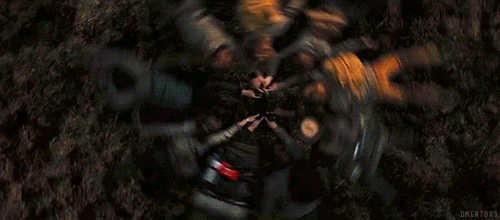I don’t ever write anything without also revising it. Revision is a vital tool of organization and clarity for me. Even as I write this sentence, I am already planning to return and rethink the previous sentence; so, too, revision happens without my noticing.
As with most tasks, when revising, I work exclusively on my computer. I find that typing, rather than handwriting, is more fit to keep up with my flow of ideas as I write. Revision, in particular, is so much easier on a computer than the alternative of scribbling in margins, making cross-outs, inserting carets, and so on. Specifically, I use Google Docs. To some extent, I rely on the Google Docs versioning feature, but I also create several individual documents during different stages in the process. I find that I very rarely use the feature at all, and I rarely revisit earlier versions to retrieve previous phrases. It is mostly a comfort, that my work will not be entirely lost if disaster strikes.
I often – indeed, always – revise my school work. To do so, I find it very helpful to write a draft of an essay that is just a stream of my rambling thoughts (namely, when I cannot think of a clear argument or direction I want to take the assignment in). I write what I call a “bad essay”, and by simply writing, I start to uncover truth and understand my own beliefs better. For me, writing is thinking. Having to convince yourself of any given side of an argument reveals your true leanings. When my “bad essay” is finished, I know where I stand, and I know the steps in my argumentation that led me there. Then, I start over.
I even revise Instagram captions, Facebook posts, and emails to professors. I guess it’s a way of composing myself before publishing my naked thoughts. I have never been a big fan of first impressions, and revision grants me a do-over, at least in written circumstances.
In addition, I frequently edit other people’s writing. As a member of the TEDx team on campus, I have spent months editing and revising others’ work, which is vastly different from revising your own. In this context, revision focuses on simplification and clarification, while attempting to preserve personality. I am tasked with prioritizing their voices and stories and leaving my syntactical and aesthetic preferences behind.
Revision is an act of humility. It is being able to admit that your past self was ignorant. It is, even, prioritizing coherence over admiration for your own words. It can also be sacrificing your own voice for someone else’s story.
Most of all, it is never finished. I reject the idea that an author’s work is presented to an audience exactly how they wanted the audience to experience it; I don’t think a good author is ever “exactly” satisfied. Elementary school taught me that there is always something to “fix”, yet “fix” isn’t quite right either. It isn’t as though one piece of writing is more right than another (excluding grammatical errors). It is more so about which is more true to you, and only by revision do we come the closest to that truth.

